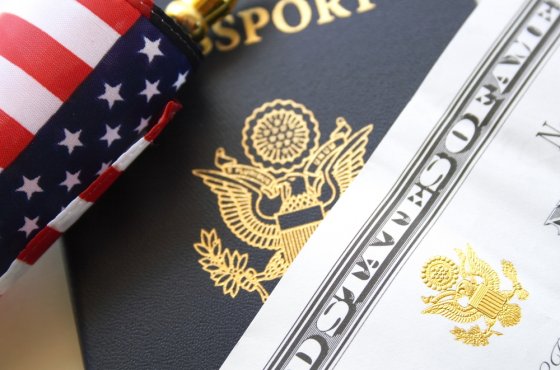The article has been automatically translated into English by Google Translate from Russian and has not been edited.
Переклад цього матеріалу українською мовою з російської було автоматично здійснено сервісом Google Translate, без подальшого редагування тексту.
Bu məqalə Google Translate servisi vasitəsi ilə avtomatik olaraq rus dilindən azərbaycan dilinə tərcümə olunmuşdur. Bundan sonra mətn redaktə edilməmişdir.
Correspondent "VOA»Charles Manes flew from the USA to Russia at the very height of the COVID-19 pandemic and was forced to spend two weeks in house imprisonment - according to the rules of self-isolation for people who arrived in the country from abroad. He outlined the features of quarantine life in Russia in his publication. Next - from the first person.

Photo: Shutterstock
I flew from Washington to Moscow the day before Russia closed its borders for most international flights. It seemed dramatic. It was dramatic - until the moment I got to Moscow.
Russians really don't like to dramatize. Perhaps because they went through a lot in their history. All I know about was no tests at the border. No questions asked. No infrared thermal imagers measuring the temperature of the bodies of passengers arriving at the airport.
The customs officer noted that the next day the border for travelers from the United States will be closed.
“What are you going to do here?” He asked me.
“Well, I live and work here, so I think I'll just wait.”
They nodded and pressed the green button. They let me in.
When I got to the apartment where I live with my girlfriend, I called the hotline recently organized by the Russian government to inform me of my arrival from the US, a country that the Russian authorities recently declared the “dangerous” territory in which the outbreak of coronavirus occurred.
Strictly speaking, according to the rules introduced here, I now had no quarantine, but what the Russian authorities called "self-isolation." This is somewhat reminiscent of the measures taken by the Russian authorities in response to the coronavirus: in theory it sounds good, but in practice it leaves more questions than answers.
“So will someone come and check if I am here?” I asked. “Not sure,” the operator answered.
“What should I do if I need to test it, or if it feels bad?” My girlfriend asked.
“Just take care of him,” the answer sounded.
And she really cared about me.
On the subject: U.S. Health and Science War: NYT linked measles and coronavirus outbreaks to Putin
We live on the second floor, which turned out to be a gift of heaven during a two-week quarantine, during which I really never left the apartment. First, we lowered the basket from the balcony to pick up gifts from friends and relatives, which consisted mainly of food and beer.
In fact, there was no particular need for this. In Moscow there are many small firms that deliver essential goods to your home. I am very glad that they are there, and I hope that they will survive the economic crisis. I take this opportunity to say hello to couriers from delivery services. Thank them with a tip, if possible.
I was impressed by the good beginnings on the Internet, the purpose of which was the desire to help all of us usefully kill time during the quarantine period: the great Russian actors arrange online broadcasts every night reading aloud fairy tales - I suspect they are intended mainly for an adult audience. The real find was online concerts - an adaptation of the Soviet tradition of "apartment owners", underground concerts arranged at home.

One of the works presented as part of the #isolation flash mob is W. Hogarth’s “Soon after the wedding.” Hipsta_alex/Instagram
But the biggest gift so far has been a Facebook flash mob project called #isolation, in which Russians recreate great works of art at home. Now almost half a million people have joined the group. The amateur recreation of world masterpieces is proof of the ability of Russians to self-irony in the best sense of the word. In isolation we are alone. However, at the same time we can be alone at home - and all at the same time.
On the subject: Features of national quarantine: how different societies behave in a pandemic
I spend too much time looking at a window of the same kind - absolutely not spectacular: rare pedestrians, not too many cars, occasionally birds fly by. If I knew that I would have to spend ALL my time here, I admit, I would invest more in my view from the window. The apartment is several floors higher. Overlooking the Kremlin. However, boredom has its advantages. I used to not understand fans of leisurely Norwegian television shows. Now understand.
I admire animals, especially my cat amazes me. There is no need for quarantine. When we look out the window longingly or complain about the view from this same window, or when we are just bored - she looks at us with an expression as if she says: “Oh, come on ...”
I understand that when we all sit at home, we have a desire to engage in previously unrealized projects. I have such projects too. However, my neighbors, who decided to participate in projects to repair their apartments with a drill and a hammer, deserve all the bad things that could happen to them. I'm serious. Nearly.
However, it is worth remembering that in the midst of all this gloomy news, good events also happen. Three (three!) Of my friends immediately had children from the beginning of quarantine.
The Russian response to the pandemic is either quite adequate, or resembles disaster preparedness. Or something in between. In Russia, fewer cases of infection have so far been registered than among neighbors in China or Europe. However, there are serious questions to the quality of testing and, possibly, to attempts to artificially lower [official] statistics. My job is to communicate with people. What they are telling me gives reason to believe that the situation here may worsen before improvement comes.
Read also on ForumDaily:
How to physically and psychologically adapt to self-isolation: life hacks of astronauts
How the US and the world plan to return to normal after quarantine
Nine amazing corners of the world that you can see without leaving your home
Google monitors how we enforce quarantine: how it happens
How to cook safely during a pandemic: UNICEF recommendations
stdClass Object ([term_id] => 1 [name] => Miscellaneous [taxonomy] => category [slug] => no_theme)
MiscellaneastdClass Object ([term_id] => 894 [name] => Moscow [taxonomy] => post_tag [slug] => moskva)
MoscowstdClass Object ([term_id] => 3778 [name] => quarantine [taxonomy] => post_tag [slug] => karantin)
quarantinestdClass Object ([term_id] => 12602 [name] => Russia [taxonomy] => post_tag [slug] => rossiya)
RussiastdClass Object ([term_id] => 13334 [name] => In the homeland [taxonomy] => category [slug] => novosti-rodini)
At homestdClass Object ([term_id] => 28340 [name] => coronavirus [taxonomy] => post_tag [slug] => koronavirus)
coronavirusstdClass Object ([term_id] => 28353 [name] => READ ABOUT CORONAVIRUS [taxonomy] => special [slug] => kitajskij-koronavirus)
stdClass Object ([term_id] => 28455 [name] => COVID-19 [taxonomy] => post_tag [slug] => covid-19)
COVID-19stdClass Object ([term_id] => 28519 [name] => self-isolation [taxonomy] => post_tag [slug] => samoizolyaciya)
self isolationDo you want more important and interesting news about life in the USA and immigration to America? — support us donate! Also subscribe to our page Facebook. Select the “Priority in display” option and read us first. Also, don't forget to subscribe to our РєР ° РЅР ° Р »РІ Telegram and Instagram- there is a lot of interesting things there. And join thousands of readers ForumDaily New York — there you will find a lot of interesting and positive information about life in the metropolis.













